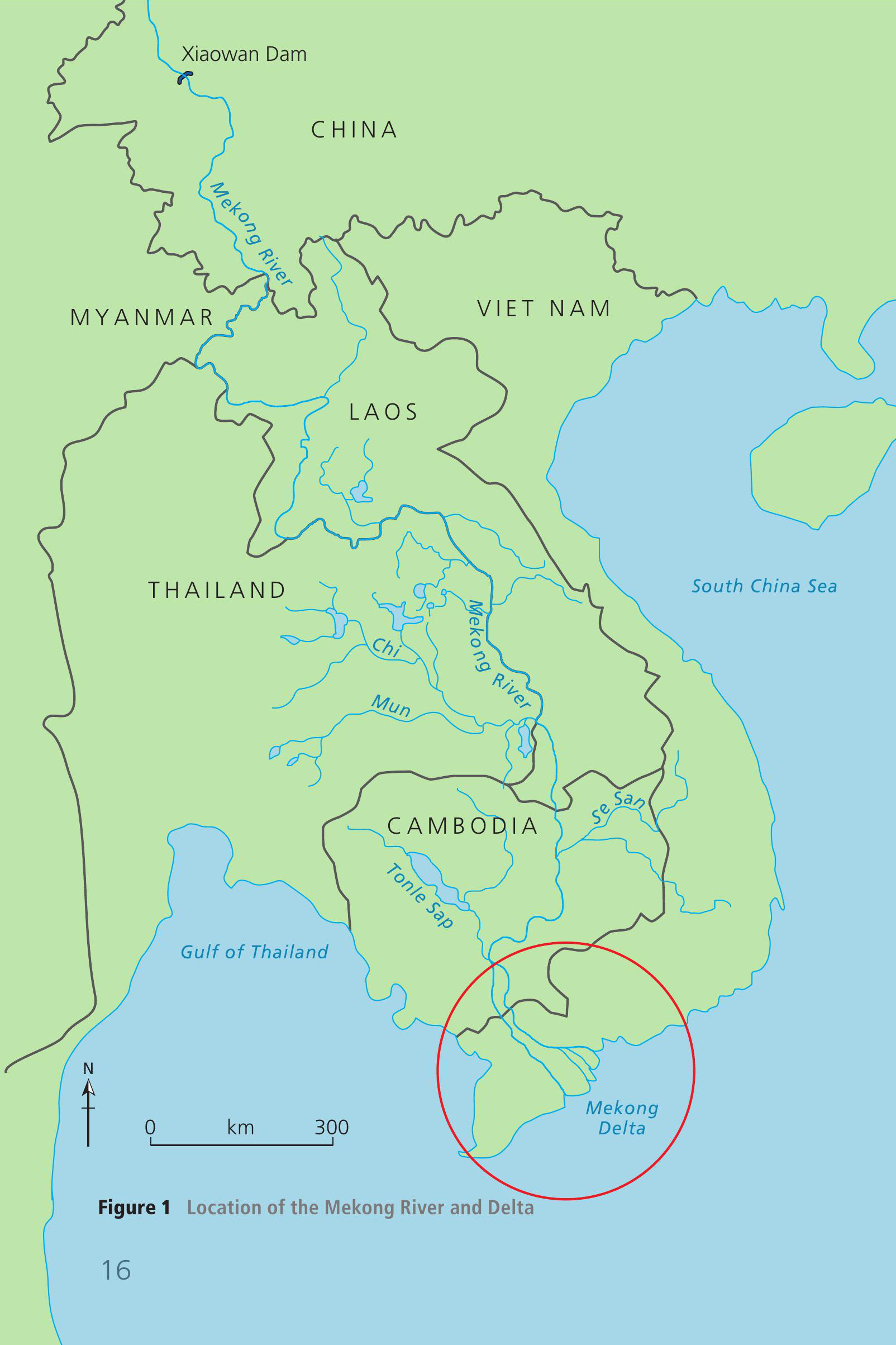
Climate change is arguably the most significant challenge facing the planet today and action to mitigate its effects is undertaken by national governments, international organisations (e.g. the United Nations) and transnational corporations (TNCs). The Mekong Delta in south Viet Nam — one of the world’s most productive and biodiverse regions — is facing many significant impacts. These impacts affect people and wildlife not only in the region but far beyond, threatening the food security of millions around the world.
The Mekong Delta, shown in Figure 1 above, is formed by one of the world’s greatest rivers (Mekong), which flows from its source in the highlands of Tibet through five different countries (China, Myanmar, Laos, Thailand, Cambodia).
Your organisation does not have access to this article.
Sign up today to give your students the edge they need to achieve their best grades with subject expertise
Subscribe




